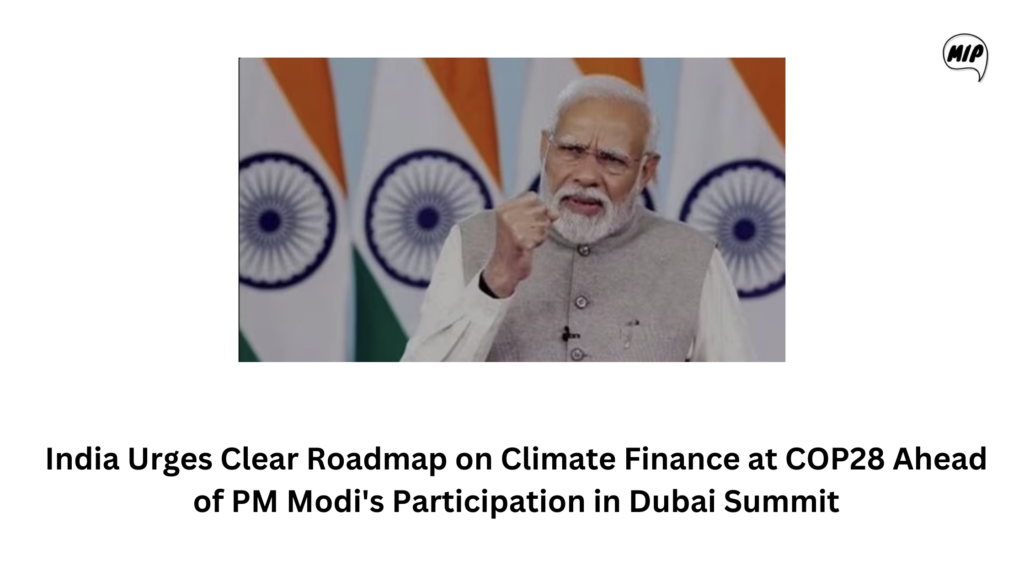
India on Thursday called for a clear roadmap on climate finance to be finalized at COP28 to address the challenge of environmental degradation shortly before Prime Minister Narendra Modi traveled to the Dubai to join the world’s most important climate meeting.
Prime Minister Narendra Modi will attend the world’s most important climate meeting, COP28, in Dubai. In his departure statement, Modi described the Conference of the Parties (COP28) of the United Nations Framework Convention on Climate Change as an opportunity to review progress under the Paris Agreement and to chart a future path on climate action.
Modi noted that at the Voice of Global South Summit convened by India, developing countries spoke of the need for climate action based on equity, climate justice and common but differentiated responsibilities, as well as a greater focus on adaptation.
“It is important that efforts of the developing world be supported with adequate climate financing and technology transfer. They must have access to equitable carbon and development space to achieve sustainable development,” he said.
Foreign secretary Vinay Kwatra told a media briefing that India has always attached priority to climate finance and technology, which are a crucial segment of global efforts to address environmental degradation. We expect a clear roadmap to be agreed at COP28 on climate finance, which would be important for delivering on the New Collective Quantified Goals (NCQG) at COP29,” Kwatra said. Modi is scheduled to participate in a high-level event focused on climate finance and technology.
India is also interested in the successful operationalisation of the Loss and Damage Fund as it will benefit developing countries by providing them a new source of financial support to address the loss and damage caused by climate events, he said.Modi also said in his departure statement that India has always emphasised climate action while pursuing economic development, and gave priority to climate in its G20 presidency. The New Delhi G20 Leaders’ Declaration includes concrete steps on climate action and sustainable development, and Modi said he hoped COP28 will take forward consensus on these issues.
Besides participating in special events at COP28 focused on transforming climate finance, the Green Credit initiative and the Leadership Group for Industry Transition (LeadIT) on Friday, Modi will hold at least eight bilateral meetings, including one with his counterpart from the United Arab Emirates (UAE). He is set to return to the country on Friday evening. The launch of the Green Credits initiative will be co-hosted by India and the UAE, and it is based on the Green Credit Programme that envisages the issue of Green Credits for plantations on waste and degraded lands and river catchment areas. The launch of LeadIT is a joint initiative by India and Sweden and is aimed at bringing together the public and private sectors to accelerate industry transition to net zero emissions.
Responding to a question on India’s position in the face of calls by Western powers to halt private financing of coal-fired power projects, Kwatra said the country is working to reduce the emission intensity of GDP by 45% by 2030, from the level in 2005, and to achieve 50% cumulative electric power installed capacity from non-fossil fuel-based energy resources by 2030. India also aims to achieve a reduction of one billion tonnes in projected emissions and 500 GW of non-fossil fuel energy capacity by 2030, in addition to achieving net zero by 2070. This is all part of India’s commitment to take targeted action towards green energy, though coal “is and would remain an important part of India’s energy mix” to meet developmental priorities, Kwatra said.
The country is among few major economies that are well on track to complete their obligated Nationally Determined Contributions (NDCs), and even its upgraded NDCs announced last year, he said.